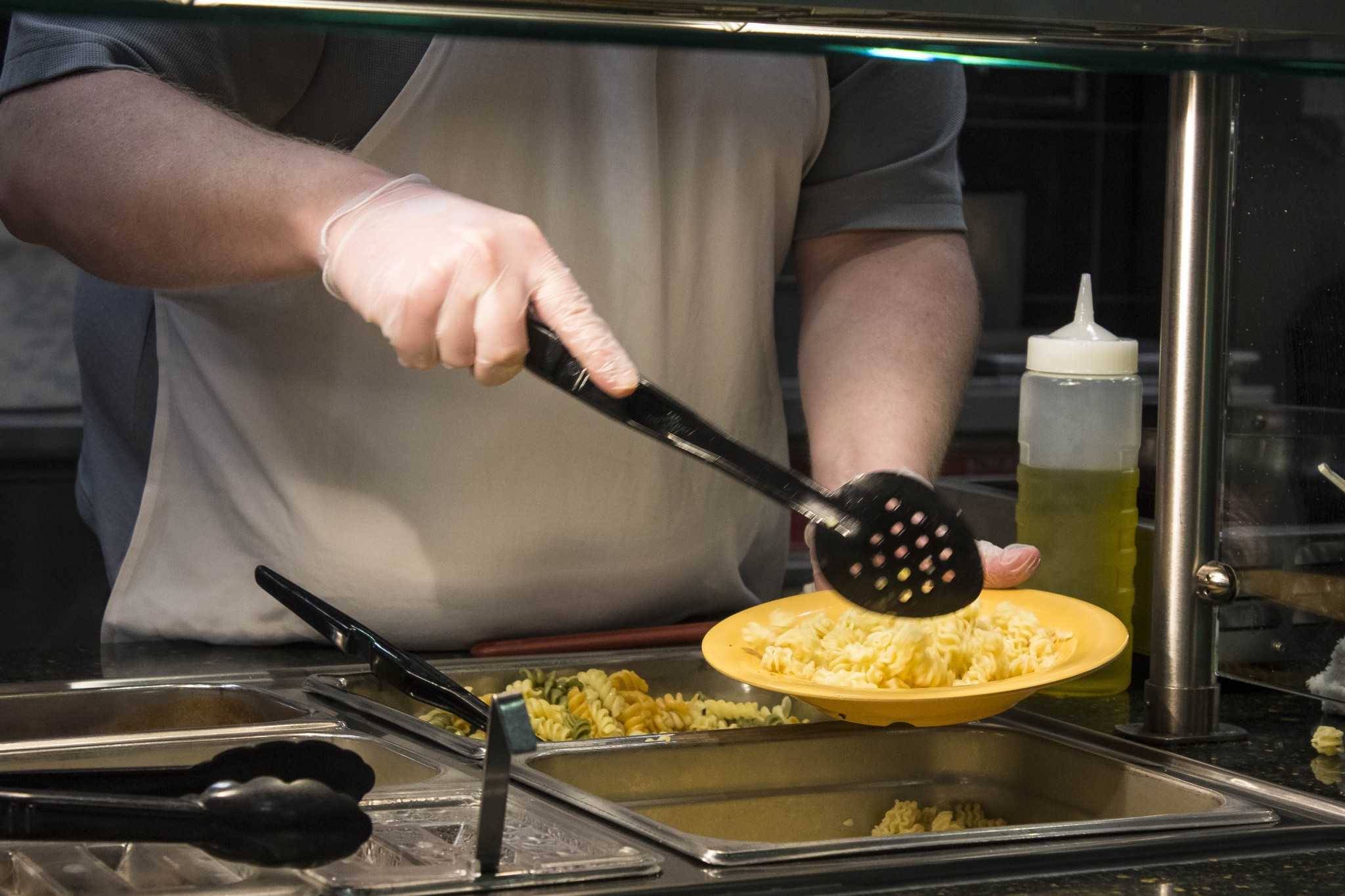A vegetarian diet can be rough for any person to maintain, and remaining a vegetarian in college can be especially challenging for young students limited to their meal plan. Appalachian offers students many different opportunities to practice a vegetarian diet on campus.
One Appalachian student, Amelia Heintz-Botz, published an article on Appalachian State University’s food services newsletter about her experience with vegetarian dining as a student.
In her article, she talks about being a timid freshman in college and eating nothing but pizza because she was afraid to explore the different dining options during the “lunch rush.”
“A month after college started and the excitement to start it died down, I realized I should probably eat a little healthier,” Heintz-Botz said. “I was too anxious to look around the dining halls as a freshmen. I was just trying to get in and get out.”
Before giving up, she explored the food services options and found healthy vegetarian meals she enjoyed. Some of her favorites include the veggie wraps, tofu with vegetables, and salads.
“We get a lot of students saying there aren’t that many options, and I’ve definitely been through that and I understand where they’re coming from,” Heintz-Botz said. “But there definitely are options, you just have to know where to look for them, and keep your mind open to trying new things.”
Former Appalachian state student Kristina Whitteker said she noticed a considerable difference on campus in one year in terms of vegetarian options.
“I think there’s a lot of people in food services trying to improve the situation,” Whitteker said. “I honestly noticed myself eating more and more my freshman year, because I was able to choose from an increased amount of options.”
Appalachian Food Services provides at least one vegetarian item at every food venue on campus. Heintz-Botz said this makes about a fourth of all the foods on campus vegetarian. The food services website lists each on campus dining option and the vegetarian favorites that they provide.
Heintz-Botz said that with the focus on local appetite, a lot of the vegetarian foods are locally grown. The tofu and tempeh served at the Asian bar at Trivette, for instance, is organic and local. Dining services has received positive feedback for the local vegetarian foods.
Donna Merrel, the assistant director of Food Services with Cascades Café and McAlister’s Deli, said that Appalachian’s Food Services is committed to fulfilling student’s dining needs, including vegan, organic, gluten-free and vegetarian.
Even at McAlister’s, there are two vegetarian soups offered daily: the autumn squash and tomato bisque. All of the nacho appetizers can be ordered as vegetarian.
“All of our entrees from sandwiches to spuds offer vegetarian items, and all seven of our signature salads can be ordered meatless or with vegetarian chili,” said Merrel.
Merrel said that vegetarian favorites at McAlister’s are the four cheese grillers, the veggie clubs and the veggie spud oles. In November, the deli will be offering a new and improved veggie spud, which will include more fresh veggies.
Food Services has worked to provide students with many options to meet their dietary needs, Merrel said. They are working to spread the awareness of their vegetarian dishes and display many of their vegetarian options through social media.
There are signs on campus to designate where vegetarian foods can be found. Heintz-Botz said she has meatless Monday posts on food services’ Instagram and other vegetarian things through their Facebook page.
“I wish I would have ventured out of the comfort zone a little more back when I was living on campus,” said Heintz-Botz. “I could have discovered all these healthy vegetarian and vegan options years ago.”
Whitteker said it’s commonplace for vegetarian students to worry about where their meals are coming from on campus.
“I have to admit they have enough options to get by on campus,” Whitteker said, “there’s plenty of obvious choices, like vegetables and fruits, but I think we’re missing a lot of other foods that vegetarians normally enjoy — like tofu.”
Whitteker said she commonly travels outside of campus for her vegetarian needs and will continue to do so when she re-enrolls in Appalachian next semester.
“A lot of times I travelled to Veggies, Fruits and More on King Street, even when I had a meal plan,” she said. “I also personally like Coyote Kitchen and Hob Nob Farm [Cafe], but obviously I can’t afford to eat at those places all the time.”
For students on a budget, Whitteker recommends a different approach to eating out and eating healthy. No matter what, Whitteker said, remaining on a vegetarian diet takes extra effort and careful planning.
“It might sound crazy to plan meals and keep lists all the time,” Whitteker said, “but sometimes that’s just what we as non-meat eaters have to do. I follow a ton of college friendly vegetarian blogs, and I keep lists of all the vegetarian meals local restaurants offer. With the high level of proponents we have for organic food in Boone amongst everything else, you can eat well with extra planning.”
A significant improvement, sophomore Cara Nelson said, could come from a club for students on campus who eat only vegetarian or vegan diets.
“I am too busy to do this, but I personally want a club on campus for freshman students who have dietary restrictions,” Nelson said. “There is so much power behind sharing recipes, hosting potlucks and honestly just having a community who wants to eat like you do.”
Nelson is surprised there is not currently a vegetarian focused club on campus. There is an animal rights group, she said.
“Not everyone is vegetarian for reasons regarding animal rights,” Nelson said, “but a lot of my friends involved in animal rights activism will have discussions on vegetarian food, so I know there would be plenty of interest. Cooking together is a great community idea in general.”
Story by: Molly Flinchum, Intern A&E Reporter

